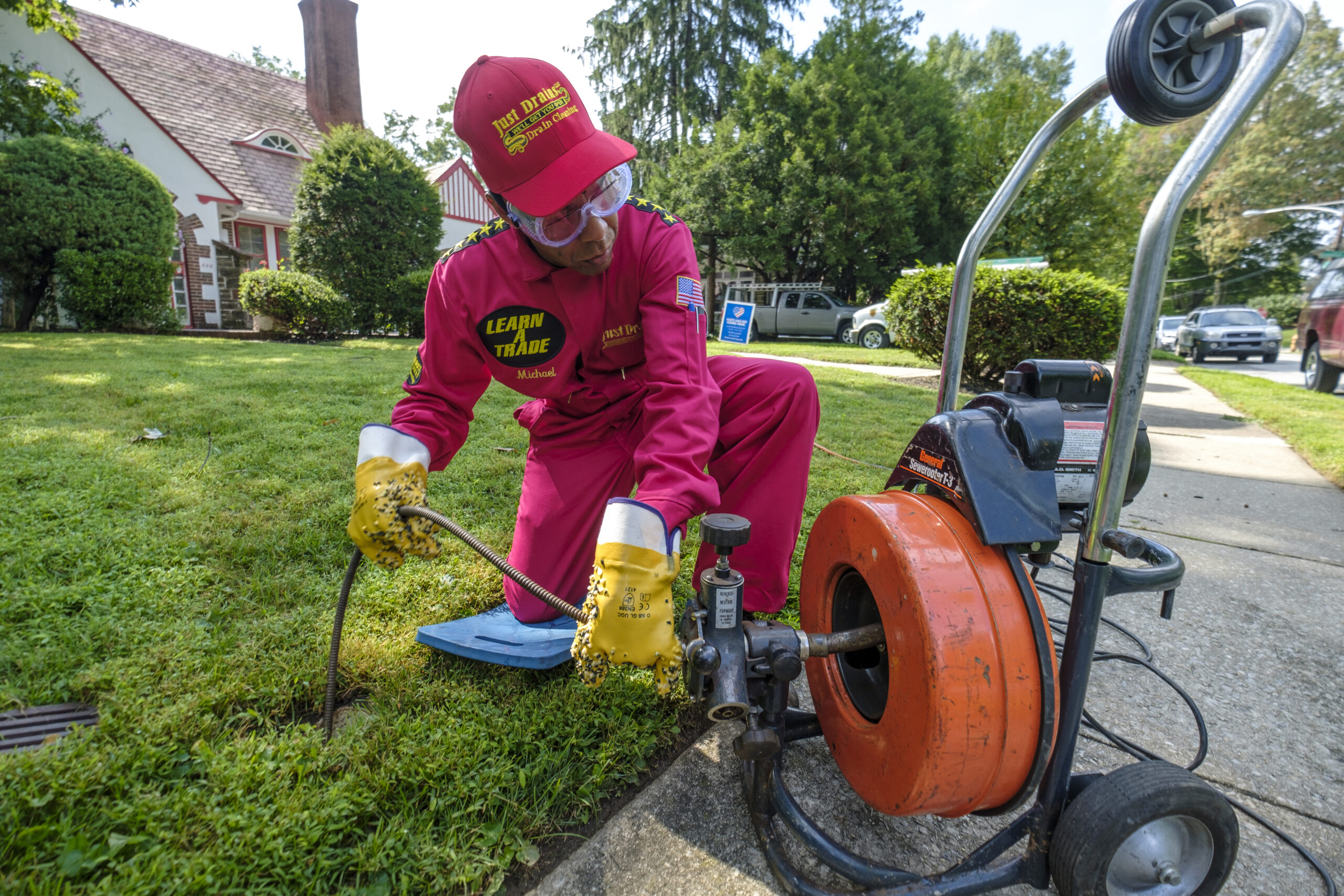Being informed on the safety of drain cleaning and the dangers of it is very important when out in the field. Whether it be knowing what drain cleaning tools should be used for the job, what safety gear to wear and proper care for your equipment. In this blog post, we will discuss the dangers and safety measures that plumbers should be aware of.
Dangers in drain cleaning
Dangers can be incurred if you use the wrong tool for the job. For example, if you have too small of a cable in too large of a drain or too large of a cable in too small of a drain, you can get the cable caught and you can cause damage to the equipment.
Also, if this should happen and you aren’t using a power feed with a guide tube on it to separate the user from the cable, there is the possibility that you can get a kink in the cable and it can grab the user by the hand or the arm—which can hurt!
Operating drain cleaning equipment should be more like using a drill than a hammer. The user should leverage the rotation of the cable and the cutter to eat its way through the obstruction, applying gentle, forward pressure. Using the right drain cleaning machine can significantly reduce the risks associated with drain cleaning.
Finally, because you are using electricity in the vicinity of water flow, make sure your electrical source is grounded with a properly functioning GFCI to protect from the possibility of an electrical shock.
PPE
Two-ply, leather gloves are highly recommended when using hand tools or drain cleaning equipment, but any kind of gloves that are specifically made for drain cleaning will work. Do not use rubber or cloth gloves, as you run the risk of getting them caught in the coils of the cable. If you must wear rubber gloves, wear them underneath the recommended leather gloves. Protective eyewear is also recommended for obvious reasons. You really don’t need anything else; it’s not necessary to garb up in a hazmat suit for drain cleaning.
Emergency response plan
We like to preach that preventative maintenance is always better than an emergency response plan.
Preventative maintenance would be a plan to regularly snake out drains because you know that if you don’t, they will have the propensity to back up.
The buildup of grease is particularly a problem in multifamily units and food service facilities, which causes emergency situations. For drains that are commonly affected by grease, we strongly recommend that companies invest in small, high-pressure water jetters, which are the right tools for the job.
Grease is not a job for a drum-style cable machine—it will poke a hole in the grease, but it will not remove the grease clog. We recommend preventative maintenance, using a high-pressure water jetter in at-risk pipes on a regular basis as opposed to waiting for them to overflow and creating an emergency. Handling clogged drains, especially when dealing with tough clogs like grease and sludge, requires the right equipment. Preventative maintenance is always easier, cheaper and more time efficient than emergency management.
When investing in basic drain cleaning equipment, companies don’t have to wait for a drain cleaning contractor to come out and do the job. Facility managers can include drain cleaning equipment into their long-term preventative maintenance programs. They will often find additional ways to put the equipment to use that they hadn’t thought of before.
Safely and correctly operating and cleaning equipment and drains
The actual care and preventative maintenance of the drain cleaning equipment should not be overlooked. Every time the machine is used, we recommend that you clean it off and let the water drain out of it. Once the water has been completely drained, we recommend applying snake oil or lubrication to the cables. If you’re using a jetter, you should also clean out the hose and take proper care of the pumps.
Every 200 hours, perform routine maintenance on your equipment—check oil levels, seals, cables and drums. Five minutes of post-job maintenance on equipment will go a long way to preserving your equipment, sometimes for 10 years or more. Maintaining drain cleaning cables and tools is crucial for the longevity of your drain cleaning equipment.
Regular maintenance of your cleaning tools, from a simple sink cleaning hand tool to complex sewer cleaning equipment, ensures longevity and peak performance. Always check for debris that might have been left behind, clean out the drum, and ensure that water is properly drained after each use. Regular upkeep reduces the chances of blockages in your cleaning machine and guarantees that you’re always ready to handle even the toughest clogs.
Here at General Pipe Cleaners, safety is a top priority, which is why it’s important to understand the dangers of drain cleaning and how to perform the job safely.
Questions? Call the Drain Brains at 800-245-6200
